Water Treatment Equipments
Water Treatment Equipments
Owing to our remarkable efforts,we have positioned ourselves as a reliable manufacturer and exporter of a comprehensive range of Reverse Osmosis Plant.The plant is designed and developed using latest technology to come up with most advanced and functionally superior product that attracts huge demand from the market.We manufacture the range using high grade materials to ensure optimum operational efficiency in purifying water by removing the impurities through reverse osmosis process.The Reverse Osmosis Plant is offered at industry leading prices to the customers.
Features:
- Uninterrupted and precise performance
- Anti-corrosivesurface
- Manufactured in compliance with International standards
- Long functional life
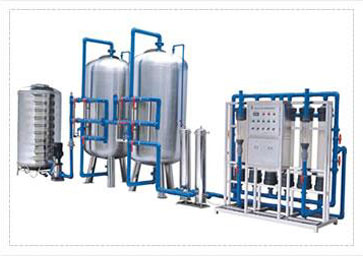
Some More Details:
Reverse Osmosis(RO)is a membrane-technology filtration technique which eliminates several kinds of large ions and molecules from solutions by exerting pressure to the solution while it is on one side of a chosen membrane.
In the general osmosis process,the solvent characteristically shifts from an area of low solute concentration(High Water Potential),through a membrane to an area of high solute concentration(Low Water Potential).The shifting of a pure solvent to even out solute concentrations on either side of a membrane produces osmotic pressure.Through the application of an external pressure to facilitate the reversal of the natural flow of pure solvent,therefore,is reverse osmosis method.
Applications of ultrafiltration
UF can be used for removal of particulates and macromolecules from raw water, to produce potable water. It has been used to either replace existing secondary (coagulation, flocculation, sedimentation) and tertiary filtration (sand filtration and chlorination) systems employed in water-treatment plants or as standalone systems in isolated regions with growing populations. When treating water with high suspended solids, UF is often integrated into the process, using primary (screening, flotation and filtration) and some secondary treatments as pre-treatment stages. Ultrafiltration processes are preferred over traditional treatment methods for the following reasons:
- No chemicals required (aside from cleaning)
- Constant product quality regardless of feed quality
- Compact plant size
- Capable of exceeding regulatory standards of water quality, achieving 90-100% pathogen removal.
When water recycling is simple, it often needs very little processing. However, when more intensive processing is required, the industry standard procedures include using UF, which is meant to remove physical solids from water by passing it through a semi-permeable membrane. Using ultrafiltration, solids are primarily captured by the filter and discarded.
Recycled water can also be used for a number of industrial purposes, including boiler or cooling tower feed water supplementation, pH adjustment, washing equipment, hardstands and vehicles, fire protection, process rinse water or processing water for production lines in manufacturing industries, toilet flushing, dust control, construction activities, and concrete mixing.
Recycling benefits
In addition to providing a dependable, locally controlled water supply, water recycling provides tremendous environmental benefits. By providing an additional source of water, water recycling offers ways to decrease the diversion of water from vital, sensitive ecosystems, thus ensuring that sufficient water flows to plant, wildlife, and fish habitats—allowing them to live and reproduce. A lack of adequate flow, as a result of diversion for agricultural, urban, and industrial purposes, can cause deterioration of both water quality and ecosystem health. Water users can fulfill their demands by using recycled water, which can free substantial amounts of water for the environment. Other environmental benefits include a reduction in wastewater discharges and reducing or preventing the potential for pollution.
Industries using ultrafiltration
Industries that consume large volumes of water or discharge highly toxic effluent are candidates to employ ultrafiltration for water reuse. These include the chemicals, steel, plastics & resins, paper & pulp, pharmaceutical and the food & beverage industries, including soft drinks & canned foods, as well as power, water & wastewater treatment plants and others. Ultrafiltration is used to recycle flow or add value to later products and more. In many cases ultrafiltration (UF) is used for prefiltration in reverse-osmosis plants to protect the reverse-osmosis process. Ultrafiltration is an effective means of reducing the silt density index of water and removing particulates that can foul reverse osmosis membranes. Ultrafiltration is frequently used to pretreat surface water, seawater and biologically treated municipal water upstream of the reverse osmosis unit.
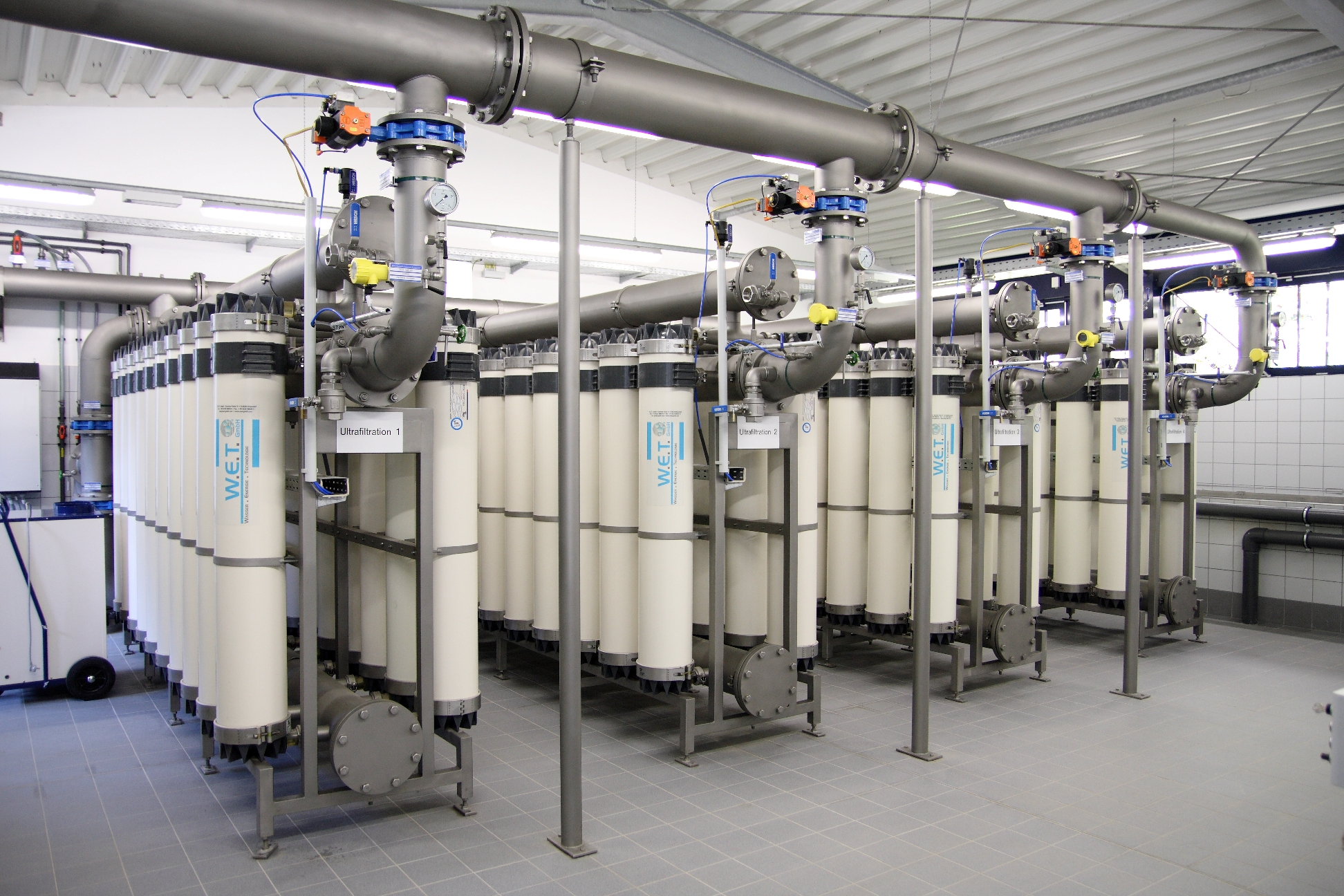
We introduce ourselves as an affluent organization, engaged in offering premium quality Industrial and Domestic RO Plant. At our production unit, the provided plant is manufactured under the stern supervision of dexterous engineers using quality assured components as well as pioneered methodology. The offered plant is designed to remove calcium and magnesium from the water.
Commercial RO Reverse Osmosis Systems handle the task of water purification for the high TDS level Water. RO System is basically used in Offices, Hospitals, Schools, Restaurants etc. Commercial RO are different types like: 25 LPH, 50 LPH, 100 LPH, 150 LPH, 250 LPH, 500 LPH, 1000 LPH , 2000 LPH ETC. RO system use in advanced reverse osmosis technology and modular water purification process, which could be connected with municipal tap water directly. It can remove impurities, microbes, bacteria, organics, heavy metals and other harmful substances effectively with efficient water purification to supply drinkable water. RO purified water is suitable for cooking, nursing, cleaning. It can also provide the purified water for humidifiers, steam iron, hairdressing, small appliances with great effect, and it can also be connected with several pipeline machines to form small-scale of water supply systems to meet high quality drinkable water needs for the home, office, producing workshop, etc .
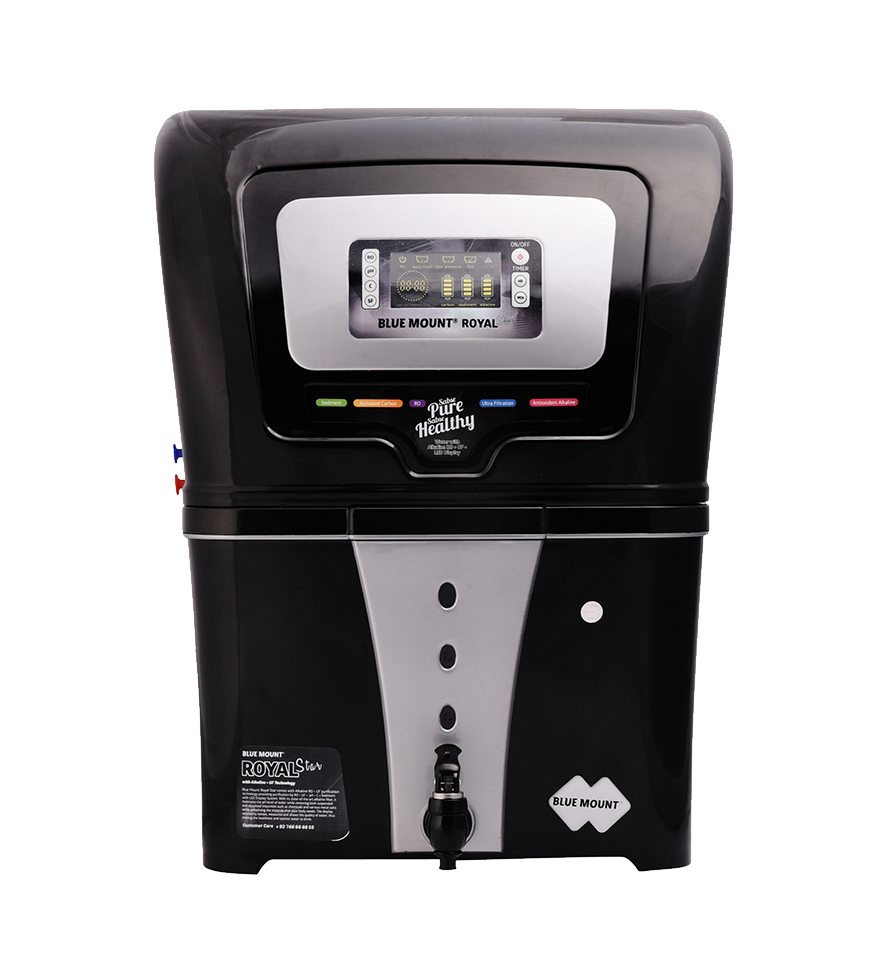
Features:
- Corrosion-resistance
- High durable standards
- Easy maintenance
More Details:
The Aqua Drop RO system’s good design makes it the perfect solution to provide safe, pure water whenever and wherever needed,from the dinner table to your next camping adventure, you can be sure that your family’s health is our first priority.Aquafresh RO provide services.
Aqua Drop RO Technology destroys microbes, bacteria, and viruses.The water quality is automatically monitored without any user interaction.
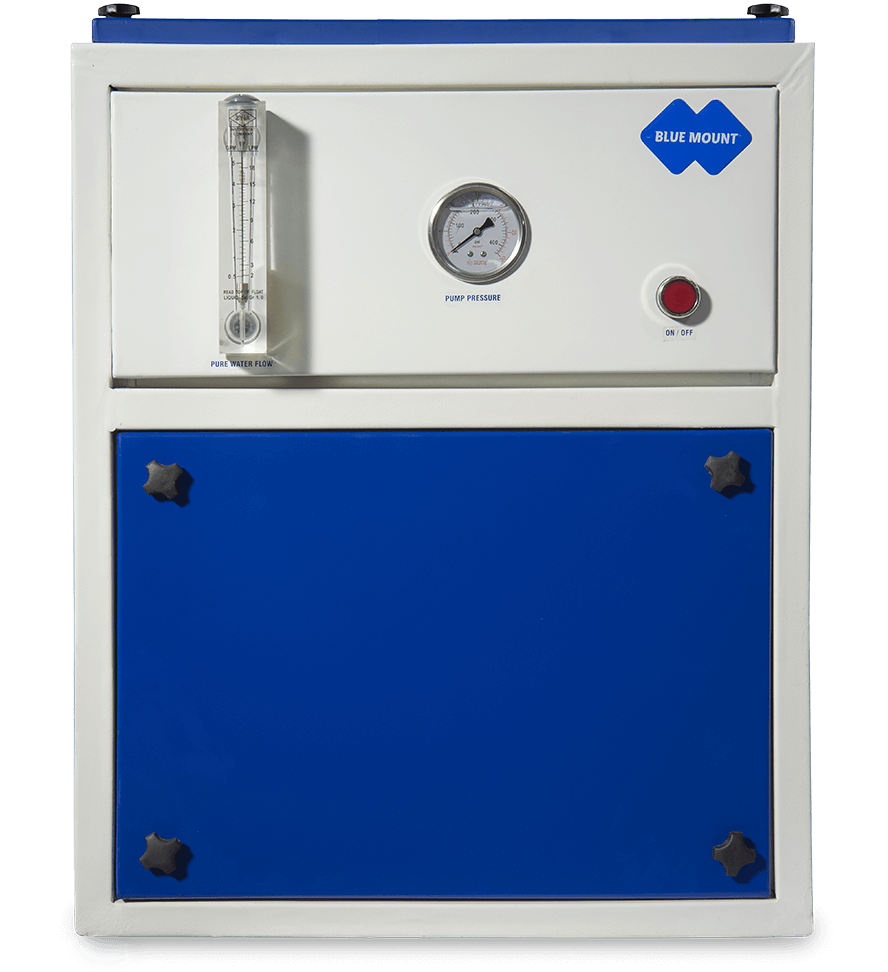
Demineralization is the process of purifying water by engaging 'ion exchange process' to remove ions present in water. We manufacture these plants under the expert guidance under whom high quality materials are purchased from reliable vendors of the market. Post manufacturing, Demineralization Plant is rechecked by our quality experts to ensure no defect occurs after installation.
Features:
- Easy installation
- Corrosion proof surface High performance
Further Details:
Demineralization is the process by virtue of which the ions present in water are removed using Ion Exchange Processes. It is achieved using Ion exchange resins. Resin is an inert, insoluble polymer which has exchangeable ions. The resins that exchange cations are cation exchange resins and those that exchange anions are the anion exchange resins.
The cation exchange resins are used in the sodium (Na+) and hydrogen (H+) forms and the anion exchange resins are used in the hydroxide (OH-) or free base form.
TYPE OF RESINS:
Depending on the type of functional group attached the family of cation exchange resins consists of : Strong acid cation (SAC) and Weak acid cation (WAC) resins
Likewise the anion exchange resins comprise:
Strong base anion (SBA), Weak base anion (WBA) and Mixed base anion resin.
Reaction
CaSO4 + H-R (Cation Resin) Ca-R + H2SO4
MgCl2 +0H-R (Anion Resin) Mg-R + Mg(OH)2
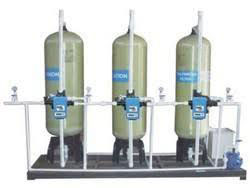
Demineralization vessels with both type of resins is called Mixed Bed (MB). It is used as a polishing unit after Anionic resin and the same is also used after RO to produce DI (De-Ionized) Water.
